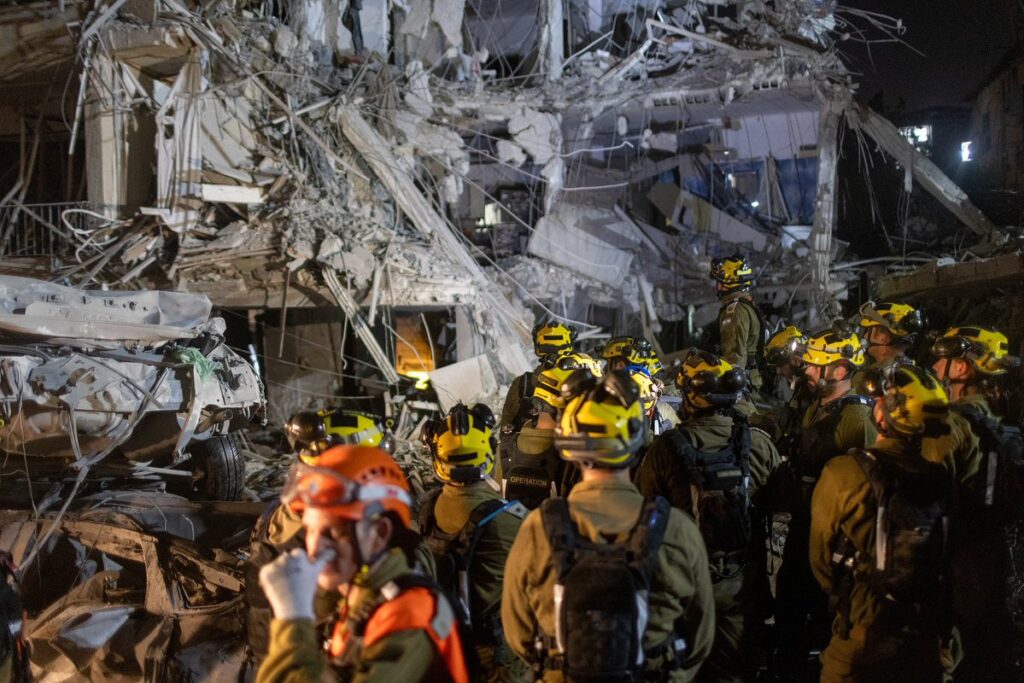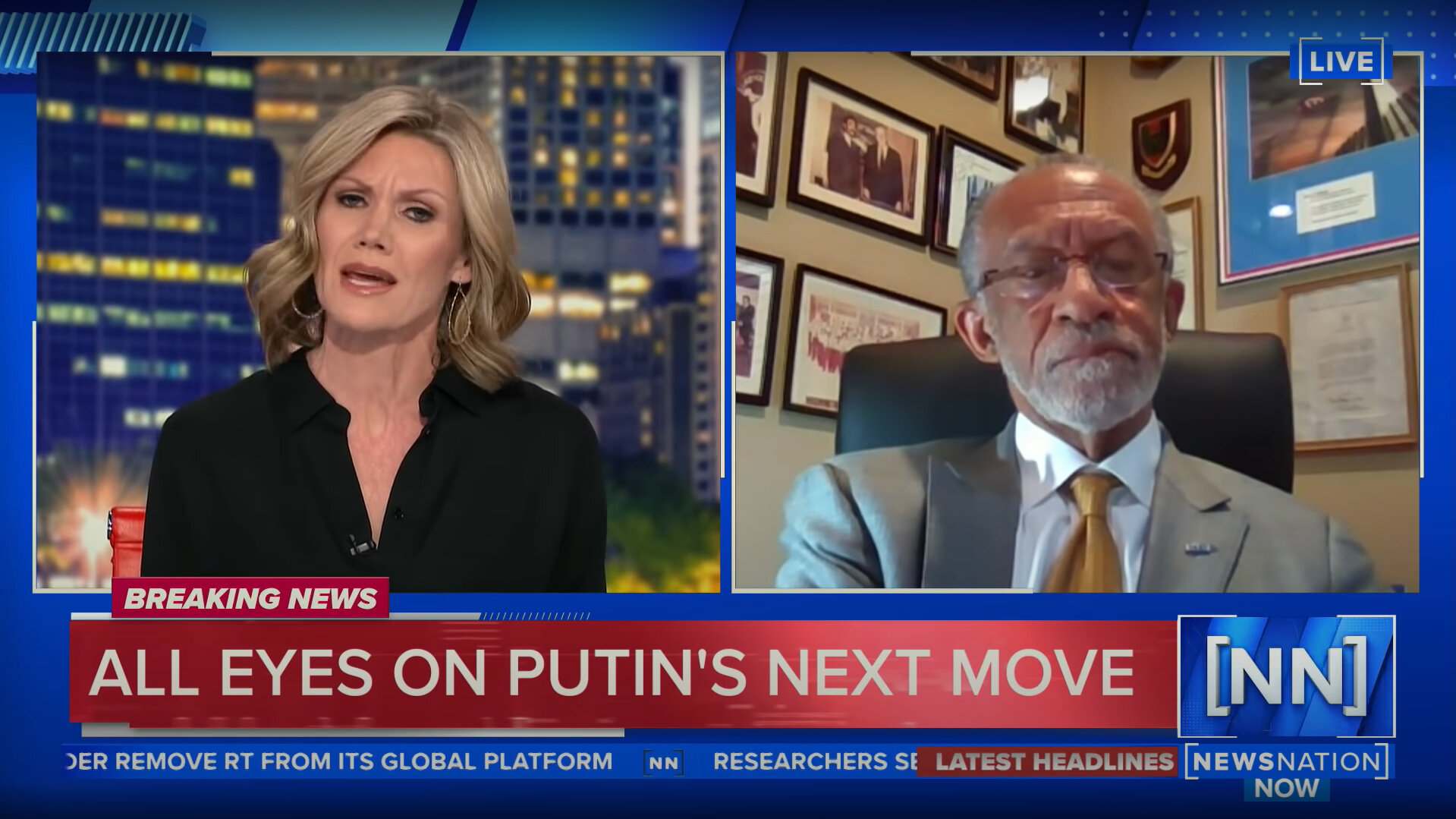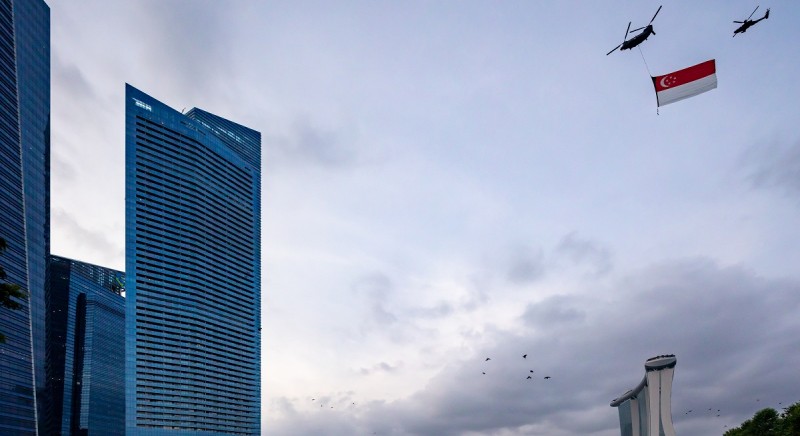War of psyches: The Middle East conundrum
by: Derwin Pereira
Published in The Edge (Singapore)
Asian Viewpoint, June 23, 2025
Israel’s pre-emptive attack on Iran’s nuclear sites and military commanders reveals the planning and preparedness with which the Jewish state secures its survival against existential threats. And no threat
is more existential than that from Iran, the Shi’ite state that openly desires the destruction of Israel.
The crux of the struggle lies in Israel’s psyche of survival, which is engaged in mortal combat with Iran’s psyche as a Persian great power. Israel’s fears of another Holocaust will determine the course of this conflict.
Although Israel is an undeclared nuclear power and has a well-armed and well-trained citizen army, it remains a small state in a volatile region where Iran is a much larger power by area and population. Iran also has a powerful conventional military. Should that military’s strength be augmented qualitatively by the acquisition of nuclear weapons, the credibility of Israel’s nuclear deterrence would fall far short of the minimum levels required to sustain its security and, indeed, its very survival. Hence the attack on Iran.
However, as with its former Arab adversaries Egypt, Iraq, Libya and Syria, Israel faces a dilemma in its confrontation with Persian Iran. If Israel does not push back, it will be gone, but if it pushes too far, it will unsettle the region that it is in. Then, it will need to invest even more in defence at the cost of spending on health, education and welfare for its citizens.
Accustomed to a high standard of living by regional standards, Israelis would face severe upheaval if war triggered social and political disruption. Such turmoil could unravel the secular and democratic credentials that set Israel apart from its adversaries. Theocratic Iran, by contrast, would stand to gain from the erosion of Israel’s national character.
This is Israel’s continuing conundrum. Till now, it has “won” the wars waged against it, principally in 1967 and 1973, by coming out of them victorious. The victory has lain on two fronts. Militarily, it has not only not lost territory but has gained it, thus giving itself greater strategic depth. Socially, Israel has preserved its secular Jewishness from encroachment by both religious right-wingers who are wedded to the irredentist idea of Eretz (or Greater) Israel and left-liberal Jews who, if left to themselves, would liberally consign Israel to the tender mercies of its enemies.
The question for Israel today is how it seeks to protect its geographical territory and its national identity from the fallout of a total war with Iran, which is arguably the most powerful single adversary that it has encountered since 1948 when Israel was born in a simmering cauldron left behind by the end of World War II in 1945. Now, Israel is taking on not only its sworn enemy, Iran, but also that country’s proxy armies, Hamas and Hezbollah, which are active in Gaza, the West Bank and Lebanon, and the Houthis, which are active in Yemen farther afield.
This war is not an ordinary one. That is why it is important to note the strategic objectives of Israel and Iran as they engage in a struggle for survival or mastery in the Middle East — survival in the case of Israel and mastery in Iran’s case. No matter how the present conflict ends, the struggle will continue unless one side concedes defeat un-ambiguously, which is unlikely.
Israel’s psyche
Israeli Prime Minister Benjamin Netanyahu is a historically-minded leader. That has led him, over and over, to compare the theocracy of Iran’s leadership with the anti-Semitism of Germany’s erstwhile Nazis. Prefacing his rationale for military action against Iran now, he declared: “Eighty years ago, the Jewish people were the victims of a Holocaust perpetrated by the Nazi regime. Today, the Jewish state refuses to be a victim of a nuclear Holocaust perpetrated by the Iranian regime.”
According to news reports, Iran claims that its nuclear programme is meant for peaceful purposes only. However, Tehran’s enrichment of uranium to near-weapons-grade levels and its failure or refusal to cooperate with international inspectors compromise those claims. For example, the head of the UN nuclear agency has warned the world that Iran has enough enriched uranium to make several bombs. Indeed, the agency has cited Tehran for having failed to comply with its non-proliferation obligations.
In the circumstances, Israel’s position is two-fold: minimalist and maximalist. At a minimum, it wishes to dismantle Iran’s nuclear and ballistic missile programmes. At a maximum, it wants to bring about regime change in its adversary. On the first front, Netanyahu has said on a television programme: “We’re geared to do[ing] whatever is necessary to achieve our dual aim, to remove … two existential threats — the nuclear threat and the ballistic missile threat.” “We did act — to save ourselves, but also, I think, to not only protect ourselves but protect the world from this incendiary regime. We can’t have the world’s most dangerous regime have the world’s most dangerous weapons.”
But the Israeli leader asked whether regime change was an objective of his nation’s military effort, saying: “Could certainly be the result because the Iran regime is very weak.” He has urged Iranians openly to rise against their clerical rulers.
These two positions deserve careful consideration. Clearly, a nuclear-armed Iran could (and possibly would) revisit the Holocaust on a nation that was born out of the first one. Hitler’s biological animosity towards Jews, whom he considered an ethnic and economic cancer that deserved to be cut out of the body politic of global history, reveals the horrific possibilities of extreme political positions developed on the basis of genetic readings of history and so- ciety. Six million Jews paid the price for the hallucinations of a third-rate German who had managed to co-opt his largely enlightened countrymen and countrywomen into his attempt to re-engineer the course of human civilisation socially.
The Holocaust remains a marker of human history because it divided the human race into the two supposedly incompatible categories of Jews and Gentiles. True, those terms were not invented by Hitler but had preceded him for centuries. But what he did to the injuries of history inflicted on all was to steal from them and create a basis for humans to turn fatally on one of their own: Jews. Hitler’s mythological notion of Aryan supremacy was the foundational myth of Nazism, an ideology which, like all forms of fascism, rests on differences (often man-ufactured) among peoples and not on their commonalities, which are far more frequent and pervasive than their differences. Hitler sought to appropriate from history what does not belong to it: a blueprint for the future turned red with the blood of innocents.
It is not asking too much of Israelis to believe that they do not wish to meet the same fate again — and this time, finally. Their attitude is clear in the suffering of Israelis from Iran’s counter-attack.
The BBC, reporting from Bat Yam — where an Iranian missile attack had struck a 10-storey block of flats, killing several people and trapping many more under rubble — said that locals strongly supported Israel’s attack on Iran. “It needed to be done,” a 33-year-old woman said. “But we didn’t expect it to af- fect us like this.” A 68-year-old man added: “We need to keep hitting [Iran]. Of course, we have to keep going. Otherwise, they’ll drop an atomic bomb on us.” An 18-year-old concurred: “We should have done this sooner. That’s what most Israelis think.”
Agreed, these are early days in the war. Iran is no pushover, and it will expend its weapons to make that point. Israelis are accustomed to prevailing in conflicts, including in the exemplary 1967 and 1973 wars. Now, the costs of prevailing have increased. Iran is in a different league of enemies. It will not allow Israel to prevail without extracting a considerable price from its population’s material and ideational morale. How high that price will be remains to be seen. But it is fair to say that the Jewish people, especially in Israel, have an ingrained sense of the threat of ethnic mortality. They are determined to resist any power which embodies that threat. Iran has chosen to be that power.
Iran’s psyche
Why has Iran taken this decision?
The reason is that today’s Iran is the national inheritor of the great Persian Empire, which, at its zenith, was a global player. The sense of imperial majesty lived on to in-form the self-perception of the Western-al-lied Pahlavi dynasty, which was overthrown in the Islamic Revolution of 1979. Yet even Ayatollah Ruhollah Khomeini, the leader of the revolution, could not abjure the imperial legacy, no matter how much he tried to distinguish his clerical regime by enforcing Islamic rectitude on the masses. Most Iranians are Shi’ite, and many are devout, but they remain Persian with a residual longing for the restoration of their country’s imperial power, which was disrupted by geopolitical change, including the Western colonial intervention in the Middle East.
This palpable sense of loss, lurking in the population and exploited by the clerical regime, pits Persian Iran against Arab Sunni states such as Saudi Arabia. The closeness of many Arab states to the West, particularly the United States, is useful to the Tehran regime tactically as it denigrates those Arab states and seeks to portray itself as the only protector of Muslims in the Middle East (and of Shi’ites throughout the world). In this effort, the Iranian leadership draws from the country’s natural bounty: Iran has the world’s second-largest oil and natural gas reserves, after all. In fact, its claimed sphere of influence covers the Persian Gulf in particular, the Middle East in general, and the Caspian region. What the clerical regime has done is to weave Iran’s fallen glories into the larger travails of the Middle East in an age of continued Western domination.
Palestine is the most glaring example of the avowed dispossession of Muslims (although Palestinians are not only Muslims but include Christians) in the Middle East at the hands of Israel, which is portrayed as a neo-colonial Zionist entity adopted by the West to sustain and further its nefarious designs on the Muslim world. Israel’s relationship with Palestinians, therefore, becomes crucial to Iran’s great-power narrative (or complex or chauvinism, whichever word you choose). Iran cannot hope to recover its imagined place in a vanished world without revoking the right of a country such as Israel to survive and thrive in the real present. Hence, Iran’s opposition to Israel’s right to exist.
That imperial psyche is contested by Israel’s psyche, which is formulated on the need to survive at all costs.
The contest between the two psyches will decide how this war ends.
The writer is the founder and CEO of Pereira International, a Singapore-based political and strategic advisory consulting firm. An award-winning journalist and a graduate alumnus of the Kennedy School of Government at Harvard University, he is also a member of the Board of International Councillors at the Center for Strategic and International Studies in Washington, DC. This article reflects the writer’s personal views
War of psyches: The Middle East conundrum




